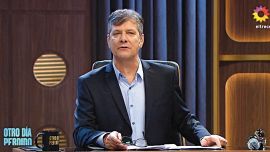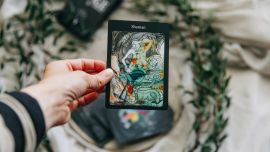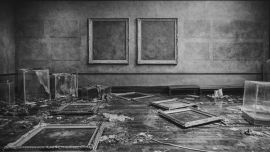Argentina on Tuesday condemned the presence of Iranian Deputy Minister Mohsen Rezai, one of the accused in the 1994 terrorist bombing of the AMIA Jewish community centre in Buenos Aires, at the inauguration of Nicaraguan President Daniel Ortega.
"The Argentine Republic expresses its strongest condemnation of the presence of Mohsen Rezai at Ortega's inauguration," the Foreign Ministry said in a statement.
"It constitutes an affront to Argentine justice and to the victims of the brutal terrorist attack against the Argentine Israelite Mutual Association (AMIA), committed on July 18, 1994," it added.
Despite the condemnation, however, Argentina's government came under fierce criticism itself from opposition lawmakers, after it sent a diplomatic representative to the event – the country's Ambassador to Nicaragua Daniel Capitanich, the brother of Chaco Province Governor Jorge Capitanich.
AMIA's leadership also lashed out, expressing its dismay that President Alberto Fernández's government did not withdraw its representative from the ceremony when it became aware that Rezai was present. The Iranian official was in attendance as Tehran's official representative. He was appointed Iran's vice-president for economic affairs last August, prompting a diplomatic protest from Argentina.
Rezai, who at the time of the attack was commander of the Iranian revolutionary guard, is one of a group of high-ranking Iranian officials wanted for questioning related to his alleged role in the decision-making and planning of the attack on the Jewish centre.
Ortega, 76, was sworn in Monday as Nicaragua's president for a fourth straight term following disputed elections held in November that took place with nearly all his challengers in jail.
"Yes, I swear," said strongman Ortega as he and his wife Rosario Murillo, who was re-elected vice-president, were sworn in at a ceremony attended by the presidents of Cuba and Venezuela and envoys from China, Russia, Iran, North Korea and Syria, among others.
In the months leading up to the November 7 vote, Nicaraguan authorities detained nearly 40 opposition figures, including seven would-be presidential challengers, assuring victory for long-time ruler Ortega.
A firebrand Marxist in his youth, Ortega has ruled Nicaragua from 1979 to 1990, after leading a guerrilla army that ousted US-backed dictator Anastasio Somoza. Returning to power in 2007, he has won re-election three times, becoming increasingly dictatorial and quashing presidential term limits.
Ortega, with Murillo on his ticket, garnered 75 percent of the vote in November. The election took place without independent international observers and with most foreign media denied access to the country.
Criticism
Opposition lawmakers in Argentina fiercely criticised the government for attending the event, which came just days after President Fernández assumed the pro-tempore presidency of the CELAC regional bloc.
"The government of Alberto Fernández repudiates, late and poorly, the participation of Mohsen Rezai in Ortega's inauguration ceremony, but I would like them to say whether, upon learning that the accused from the AMIA bombing was there, they have taken the necessary steps to request his urgent extradition," said UCR national deputy Alfredo Cornejo.
For his part, PRO lawmaker Waldo Wolff declared: "The government now repudiates the presence of a person wanted by our justice system for the AMIA bombing? The government should have asked for his arrest, called the Nicaraguan ambassador for consultation and summoned the foreign minister to appear before Congress. The repudiation is against our complicit government.”
"The government repudiates the presence of Rezai at the inauguration of the dictator Ortega, whom it sent the ambassador to support," said fellow lawmaker Fernando Iglesias, who called for the resignation of Foreign Minister Santiago Cafiero.
Sabrina Ajmechet, also from PRO, referenced the leaders of Venezuela and Cuba, who were also in attendance at the event.
“[Nicolás] Maduro, Ortega, [Miguel] Díaz Canel and Mohsen Rezai, one of those accused of the AMIA bombing. This is what Argentina's current diplomacy has been accompanying. Tell me who you hang out with and I'll tell you how you like to do politics. They showed it here: with dictators and terrorists.”
– TIMES/AFP/NA


























Comments